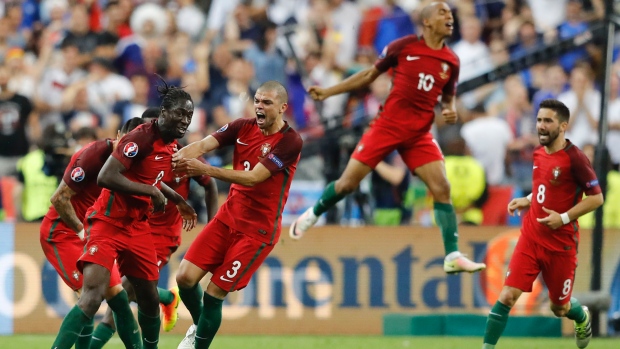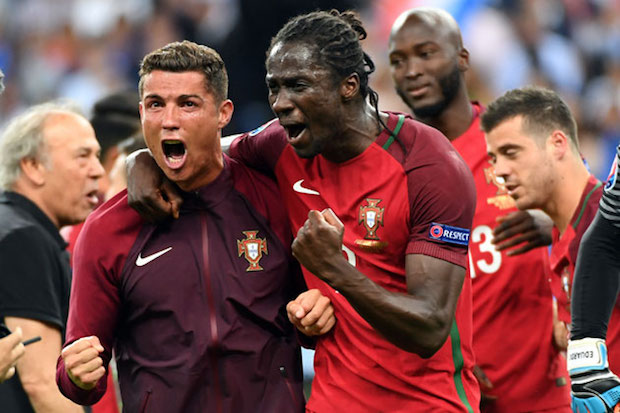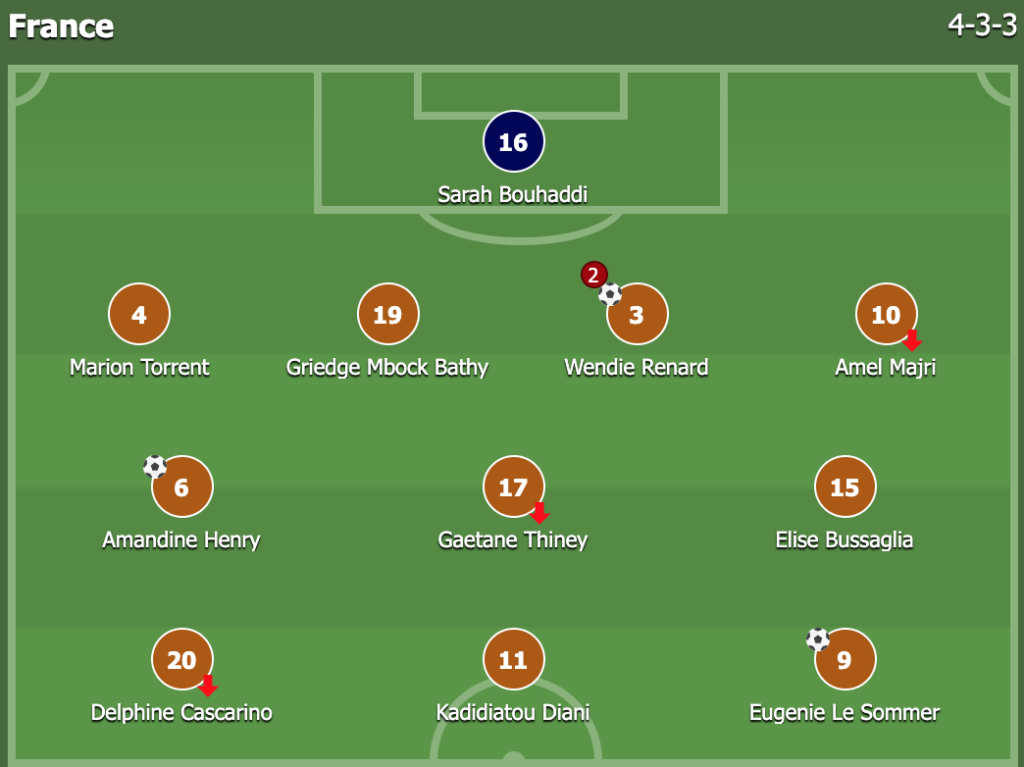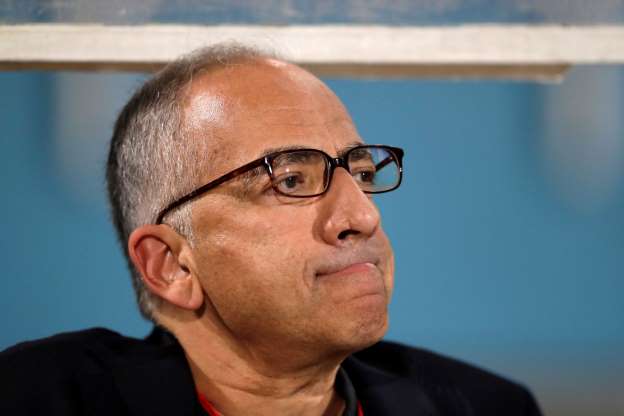
AP Image
Twelve years ago, Greece — against all odds — won Euro 2004. Defensive and conservative, their style throughout that tournament irritated many fans of the game, but undoubtedly also the host team they defeated in that final, Portugal. The Portuguese national team featured skilled talents like Luis Figo, Deco, Pauleta, and a 19-year-old Cristiano Ronaldo. Despite recording 17 shots, they couldn’t find the net, while Greece’s lone shot on target won them the trophy.
In an odd turn of events, Portugal are now the Greece of Euro 2016 in the eyes of many, stealing the title from a deserving host country through negative football. Mere minutes after the final whistle, a 1-0 Portugal victory over France, the announcers were hand-wringing over what it means that Portugal just won the European championship the way they did.
If you watched Portugal over the last month, you can see why this discussion is happening. Even without taking into account their style of play, this was a decidedly average team for most of Euro 2016. Drawn into a group with three lesser talented teams, Portugal proceeded to draw three straight matches, only advancing to the knockout round due to a (kind of silly) new rule that allowed four 3rd place teams through.
Due to blind luck, they were gifted the much easier side of the bracket, the one without former champions Italy, Germany, France, or Spain. Even with this fairly easy path to the final, Portugal continued to look far from impressive. Against Croatia, they needed an extra time Ricardo Quaresma goal to save themselves from the coin toss that is the penalty shootout. Then they won that coin toss in the next round by squeaking past Poland in a shootout.
Incredibly, they didn’t win a match in regulation until the semifinals, when they dispatched Wales with goals from Ronaldo and Nani. Portugal were in the Euro finals — and still hadn’t convinced many that they were all that good.
Sunday’s final pitted the swashbuckling host country against a team that seemed like they were lucky to be there. Still, everyone hoped there would be a well played and compelling final. Unfortunately, aside from a few close French scoring chances and a Quaresma bicycle attempt, the final had a sleepy and scoreless first 90 minutes. The only moment of real suspense was witnessing Ronaldo helplessly bow out with a leg injury just 25 minutes into the biggest international game of his career.

Getty Images
And yet — against all odds — Portugal won Euro 2016. They were outplayed by France, of course, but not by as much as some would have you believe. The shots on goal were only 7-3 in favor of the French, who, despite striking the post late in the match, didn’t do enough to take hold of the final. Antoine Griezmann, while easily the player of the tournament, missed a crucial header and Paul Pogba was playing much too deep to make a real impact on the offensive end. Eder’s unlikely strike from well outside the box left France heartbroken, but it wasn’t an altogether cruel result.
Not many have remarked on Portugal’s defensive effort in the aftermath of their European victory. Yes, they had an easy slate of teams, but to only let up five goals in seven matches (with four shutouts) proves Portugal were exceptionally organized on defense. Goalkeeper Rui Patricio may have not-so-secretly been Portugal’s MVP throughout the tournament and Pepe and the rest of the backline remained improbably consistent.
On the other end was where many found Portugal lacking. When Ronaldo went down in the final, it seemed as if it would take an act of God for them to score (and maybe Eder’s first competitive international goal was that act, who knows), but Portugal actually didn’t rely on CR7 to carry them through this tournament. In fact, he struggled mightily at times, particularly at the start. He whiffed on golden chances and missed a penalty in Portugal’s first two group games. There were the Iceland “small mentality” comments. He tossed a reporter’s mic into a lake (no, really). Euro 2016 could hardly have started worse for Ronaldo.
His two-goal explosion vs. Hungary was the Ronaldo we had been waiting for — dangerous, terrifying in space, with zero self-doubt. That Ronaldo would only appear in spurts in the knockout round, as he failed to find his place in the next two matches, before rising to the occasion again in the semifinals.
This all makes for a truly strange, complicated addition to Ronaldo’s international legacy. The narrative in many places had been that he couldn’t win with Portugal, either because there wasn’t enough talent around him or he just wasn’t up to the task himself. Now, he’s a European champion, but he missed almost the entire final and was streaky at best when he was on the field at these Euros.
However, doesn’t this make Portugal’s title more impressive? They didn’t need Ronaldo to carry them and actually went and won the final without him. The fact that they wouldn’t let the host nation steamroll them after their best player (and captain) went down is a testimony to their resolve at Euro 2016. Were they entertaining? Of course not (especially after Ronaldo exited), but you have to admire their tenacity to never allow their opponent to get comfortable. Plus, this year’s tournament often lacked quality soccer, so it kind of makes sense a team like Portugal was left standing.
Here’s the thing: We like to think the best and most talented team usually wins, but international tournaments are highly subject to good and bad bounces, who gets injured or suspended, and which teams you come up against. Portugal benefitted from the post on what looked like a surefire Gignac goal, got to face an Aaron Ramsey-less Wales, and drew the weaker side of the bracket. Luck and chance plays a part in every champion’s journey.
After all, you can only beat who is put in front of you. Although it was in particularly unconvincing fashion, Portugal did just that. So let’s not attempt to convince ourselves they didn’t deserve it.





No Comments